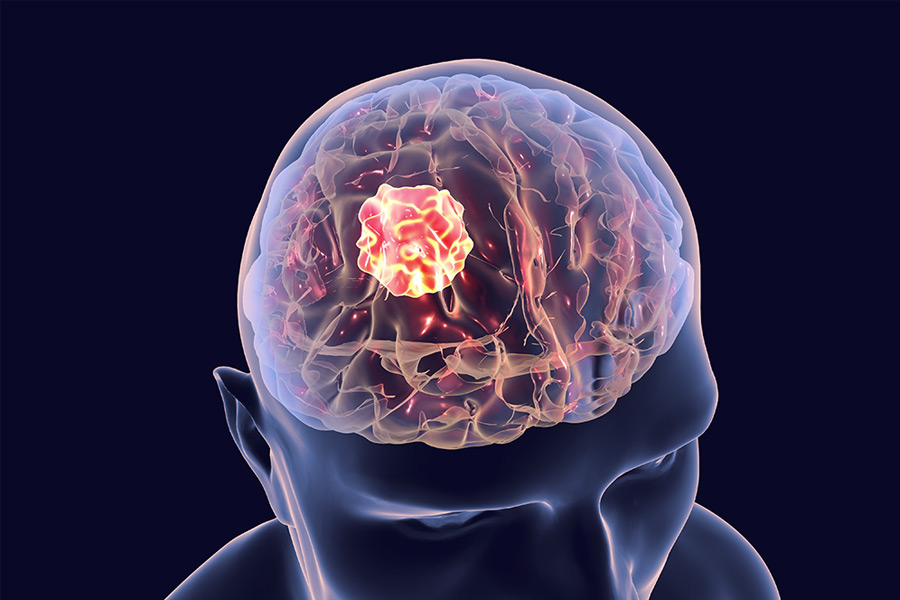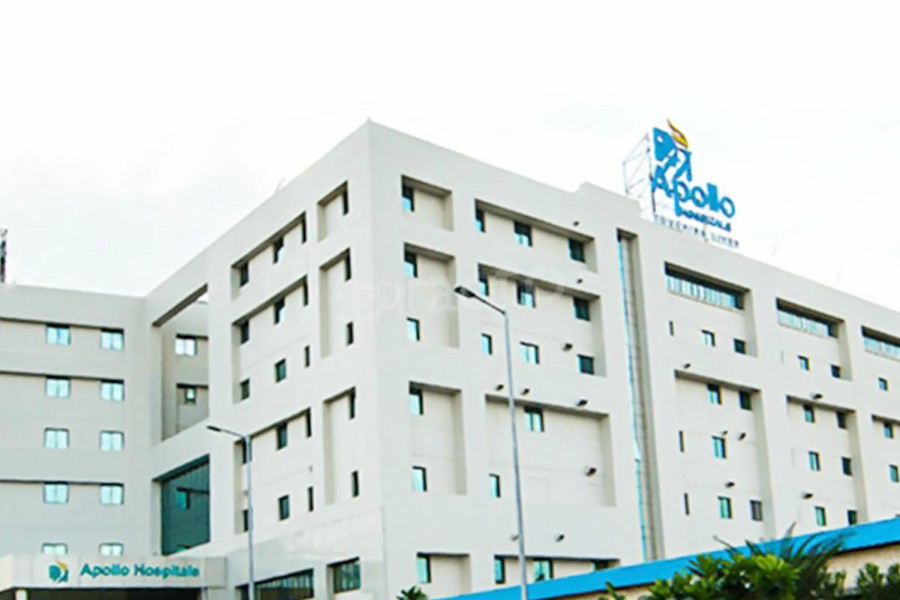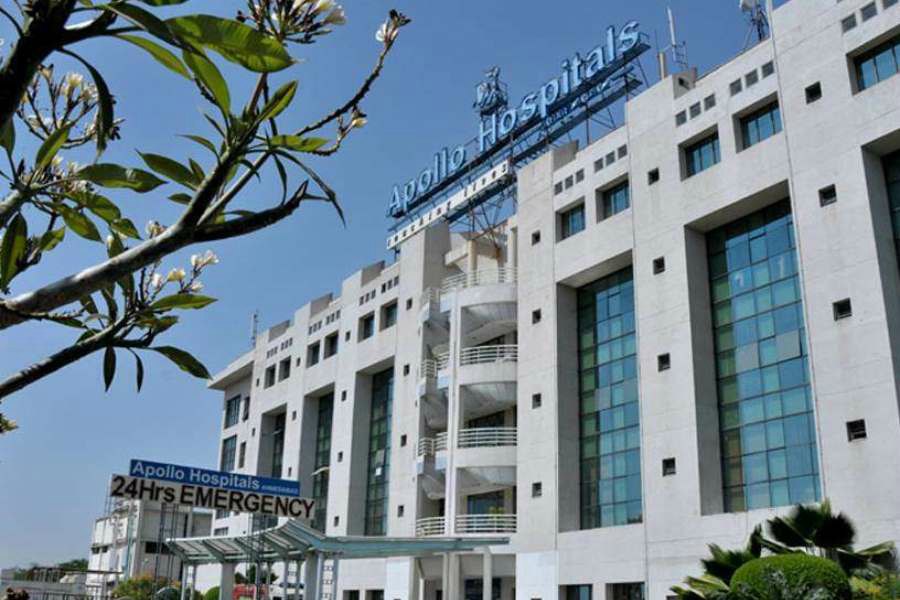
Overview
A tumor is an outgrowth of muscle and tissue occurring at any place in the body. When this outgrowth is seen to be developing in the brain, it is known as a brain tumor. The brain tumor, like all other tumors, can be of two types;
(i) one that does not spread to other sites than its site of origin, known as a benign tumor,
(ii) others that do are called as metastatic. The metastatic tumors on progression through various stages become a cancerous tumor. According to the place where it is observed, brain tumors are named differently. The corrective measures taken to counteract the effect of the tumor are known as a braintumor treatment.
Reason for performing the treatment
Tumors in the brain are a dangerous event, as the mass of tissues can exert pressure on the brain and cause severe pain and loss of function. Most of the time, the tumors have their own blood supply, and this can leach upon the required blood supply in the brain. Moreover, if the tumor is detected as cancerous, then it can spread to the other sites of the body. Moreover, it can hinder the normal functioning of the brain, and cause disruptions in the neural activity of the brain.
The treatment protocol may comprise of radiotherapy, chemotherapy or surgery in extreme cases. However, multiple treatments can also be applied depending upon the stage and aggressiveness of the tumor.
Causes
The exact cause of the development of a brain tumor is not known. Although some chemical and other agents are known to cause tumors, the involvement of a specific agent is not known for a brain tumor. The general causes that can give rise to a brain tumor can be surmised as;
• Radiation:it is known that high-intensity electromagnetic radiation that causes mutation in the DNA can be the cause of cancer. Any treatment modality that uses radiation therapy directed at the brain can be the cause of tumor generation. Also, direct exposure to the radioactive source can cause a tumor in the brain.
• Environmental:Exposure without protection to different mutagens can be harmful to the body, as these chemicals can change the DNA of the host, and make him or her vulnerable to the development of a tumor.
• Metastasis: Malignant tumor formed in other parts of the body can spread to the brain due to its inherent metastatic property. This can cause tumors in the brain.
• Genetic:As the generation of tumor relies on the generation of oncogenes, it is quite possible that the chance of having a brain tumor will be more for an individual if that person has someone with the same condition in their immediate family.
• Lifestyle choices: It has been scientifically proven that alcohol and other narcotics can be a source of cancers. Ingestion of unregulated alcohol or abusing of narcotics can give rise to cancerous tissues that can spread to the brain.
• Smoking:Inhalation of the fume after burning any nicotine product is a proven way of getting lung cancer. In fact, deaths due to lung cancer have a 90% rate of smokingbeing the primary cause. Lung cancer thus developed can metastasize and spread to the brain, causing a brain tumor.
• Infection:All it is really rare, but certain viruses and prions can generate tumor upon infection with the brain tissues.
SYMPTOMS
The signs and indications of a brain tumor differ greatly and are determined by the brain tumor's size, position,and rate of growth. The symptoms may also be similar to different nerve disorders. The general symptoms of a brain tumor development are;
• Development of headaches or change in its pattern
• Headaches that gradually increases in intensity and becomes more frequent
• Inexplicable nausea or vomiting
• Blurred vision
• Double vision
• Lossof marginal vision
• Continuingdecrease of feeling or movement in an appendage or a leg
• Finding difficulty in balance
• Difficulties in speech delivery
• Loss of Clarity in ordinary matters
• Changes in personality or behavior
• The onset of Seizures, especially in individuals who did not show any instance of seizures.
• Problems in hearing
DIAGNOSIS
Brain tumors can be diagnosed in a number of ways, and mostly the test is done to determine the spread and aggressiveness of the tumor. The different ways that a brain tumor may be diagnosed can be listed as;
- Neurological exam: This exam may be performed to check on the vision, balance, coordination, hearing, strength,and reflexes of the patient. This preliminary testing can give a concise idea about the incidence and detection of a brain tumor.
- Magnetic resonance imaging (MRI): This method uses high-powered magnetic fields and computers to render a three-dimensional image of the brain. Among the different types, the functional MRI, perfusion MRI and magnetic resonance spectroscopyhave become instrumental in the detection and treatment of the tumor.
- Computerized tomography (CT) scan:This technique can be used to determine the state of the brain and the neighboring structures by taking a cross-sectional image of the head by taking X-ray images from different directions.
- Positron emission tomography: This technique uses beams of positron to get a clear and detailed idea about the location, size, and probable course for the treatment of brain tumor.
- Biopsy: Tissue samples may be taken from the brain or other sites and checked for the presence of migration markers. This is a useful tool to determine the site of the generation of the tumor.
RISK FACTORS
The risks of a brain tumor surgery and other treatments are multiple and therefore the treatment shall be chosen only by the oncologist. The risk of the treatment can include;
• Relapse of the tumor
• Nausea
• Scalp irritation
• Alopecia
• Loosening of skin
• Secondary Infections
• Resistance to the drug being used
POST-OPERATIVE CARE
You would need to stay in hospital around 5-12 days after the surgery. There is a rigorous physical therapy to ensure that the brain-body coordination returns to normal. There are 3 key types of rehabilitation suggested:
1. Occupational therapists will check if the patient can carry out routine everyday tasks like getting dressed or take a shower. The patient is tested to check if specialized tasks like driving or resuming office work can be taken up by the patient.
2. Physical therapists will check the body’s capabilities like maintaining posture, balance, and routine functions like walking or climbing stairs.
3. Speech language specialists will check if the brain’s functions on aspects like speech, language, or thinking is working fine or has been impaired. The patient’s grasp on such cognitive abilities will determine how soon he/ she can resume daily work at home or office.
Everyone takes different time to recover from the surgery. The time take will depend on
• The patient’s health condition and presence of medical conditions at the time of opting for the surgery
• The treatment implemented in order to remove the tumour
• The place where the tumour was located inside the brain
• What areas were impacted at the time of the surgery
TREATMENT
There are multiple avenues through which a brain tumor could be treated. The surgeon or the oncologist shall determine the proper course of action depending upon the seriousness, size, and the spread of the tumor. The different treatments can be stated as;
Chemotherapy
Chemotherapy is the use of chemical agents to treat a tumor. They can be given orally or intravenously. Most of the chemotherapeutic agents are non-targeted, which means that they can kill normal cells as well as cancerous cells. This treatment also has various side effects.
Radiation therapy This therapy uses radiation of high-intensity particles or energies to kill the cancerous cells of the brain. The radiation could be applied to a specific site or given to the whole of the brain. The radiation is usually given from outside of the body, however, in very rare cases, it can be also placed inside the body.
Radiosurgery This method is not a surgery per se, rather a new approach to the radiotherapy for killing the cancer cells. The beams of radiation are focused on a specific affected area of the brain. The individual beams are not very powerful, but at the point of focus, they become very large in strength and kill the cancer cells. The treatment is quick and the patient can go to their home the next day.
Surgery: This is done when there is a chance of removing the tumor from the brain is available. Before surgery, the staffs take the patients history, ongoing treatments, and any prevalent drug allergy. During the surgery, the surgeon may use the minimally invasive route or the open route. If the tumor is present in a sensitive area of the brain, the surgeon will remove as much as possible without affecting the brain. As it is a much invasive surgery, the patient is kept under anesthesia the whole time.
FACTORS AFFECTING COST
The cost of the treatment may be directed by the following features;
i. The price of medicines
ii. The fees of the surgeon
iii. The hospital cost.
iv. The cost of the radiotherapy
v. The charges of the instruments
FAQ
Surgery is a definite way of removing the tumor; however, chemotherapy or radiation therapy may also be used.
No, they cannot. In fact, tumors like glioblastoma can kill a patient within months without treatment.
It depends upon the treatment being administered. Usually, a surgical treatment takes about 28 days for a patient.


 Best Hospitals
Best Hospitals















